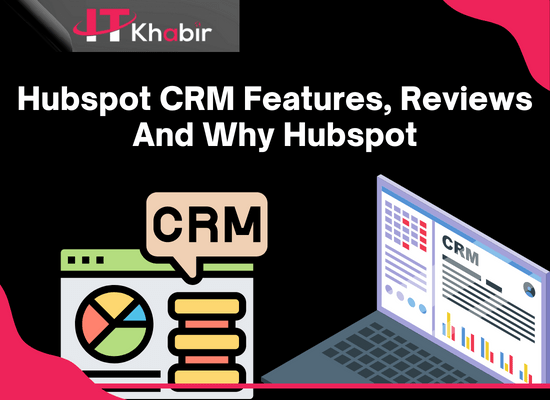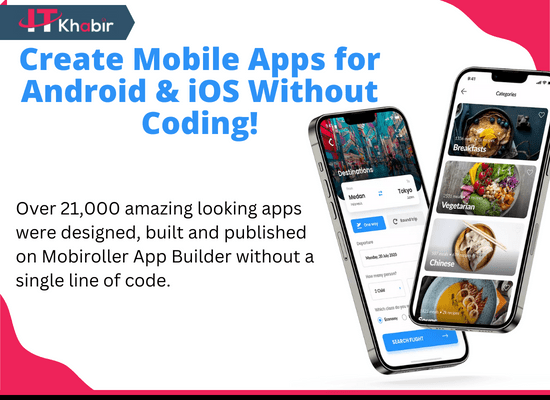The HubSpot CRM platform is the perfect solution for businesses of all sizes who are looking for a comprehensive, all-in-one solution for their marketing, sales, content management, and customer service needs. The platform offers a wide variety of powerful tools and integrations that can be used together to create a seamless customer experience. Hubspot CRM Features, Know About, And Why Hubspot?
Introducing Elite Licenser.
Hubspot CRM Features And Reviews
The HubSpot CRM platform is a powerful tool for managing customer relationships. It integrates seamlessly with other applications and provides everything you need for marketing, sales, content management, and support. While the platform’s individual products are effective, they truly come into their own when used in tandem.
The HubSpot CRM platform provides a complete view of your customers, their interactions with your company, and their buying journey. This gives you the ability to provide a personalized experience for each customer.
The marketing tools in the platform help you attract new leads and convert them into customers. The sales tools help you close deals and build relationships with your customers. The content management tools help you create and deliver engaging content. And the customer service tools help you resolve issues and create a great customer experience.
The HubSpot CRM platform is easy to use and provides a great way to manage your customer relationships. It’s a great choice for businesses of all sizes.
https://youtu.be/JWBmC3jYtPo
HubSpot CRM is the perfect tool for any size business
The ability to construct lists, conduct searches, etc. based on newly added attributes is fantastic. HubSpot’s excellent integrations with other systems make it possible to rely on it as your one, authoritative source for all customer information.
A robust and user-friendly customer relationship management system, at last. Produce outcomes that will make your customers happy. Take pleasure in the process.
You can manage your marketing, sales, content, and customer support, and more, all from within the HubSpot CRM platform. While the platform’s individual products are effective, they truly come into their own when used in tandem.
Let’s proceed with Elite Licenser features now.
Top HubSpot CRM features:
- Contact Management
- Contact Database
- Lead Management
- Sales Pipeline Management
- Email Management
- Marketing Automation
- Interaction Tracking
- Email Marketing
- Lead Capture
- Search/Filter
- Lead Qualification
- Reporting/Analytics
- Task Management
- Workflow Management
HubSpot CRM is the perfect tool for any size business.
The ability to construct lists, conduct searches, etc. based on newly added attributes is fantastic. HubSpot’s excellent integrations with other systems make it possible to rely on it as your one, authoritative source for all customer information.
Hubspot CRM Features Pros:
The customer relationship management features are provided at no cost. Simply said, that’s unrivaled. To manage your customers, it includes every feature you may want. You can expand into areas such as advertising, customer service, product sales, and more!
Hubspot CRM Features Cons:
The marketing upgrade is out of reach for the one-person business due to its prohibitive cost. It’s a shame the program is designed for large businesses only. The introduction of basic marketing procedures would be appreciated.
What is HubSpot CRM?
HubSpot CRM is a cloud-based customer relationship management (CRM) platform that facilitates lead tracking, nurturing, and metric analysis for businesses of all kinds. You can use HubSpot whether you’re in the B2B or B2C market, and regardless of what industry you’re in, be it accounting, marketing, sales, construction, retail, real estate, or another. It has several useful tools, such as email tracking, lead and contact management, and sales automation and pipeline tracking.
In real time, HubSpot’s CRM dashboard displays the complete sales process graphically. Email, social media, live chat, and phone conversations with customers can all be automatically recorded and saved in a lead-organized timeline within the CRM system. In order to assist organizations generate leads and keep tabs on the effectiveness of their email campaigns, HubSpot has integrated marketing automation and lead generation technologies into its customer relationship management platform.
Salespeople can do a lot more with the help of the HubSpot CRM sales tools than simply manage their connections and deals. HubSpot’s own Marketing Hub and Sales Hub, as well as third-party applications like Zoho CRM, Salesforce, SugarCRM, and more, are all compatible with the system.
All of HubSpot’s sales, marketing, customer care, and contact management features, as well as the ability for an unlimited number of people to use them, are included in the free version of HubSpot CRM.
Marketing Hub
Marketing automation tools that can help you increase traffic, boost conversions, and manage large-scale inbound marketing initiatives.
Popular Features
- Lead generation
- Marketing automation
- Analytics
Sales Hub
Effective customer relationship management software for salespeople can help them learn more about their leads, eliminate tedious administrative activities, and close more deals in less time.
Popular Features
- Advanced CRM
- Meeting scheduling
- Payments
Service Hub
Connect with your consumers, go above and beyond their expectations, and transform them into brand advocates with the right customer service software.
Popular Features
- Tickets
- Customer feedback
- Knowledge base
CMS Hub
Software for managing content that can be adapted to the needs of marketers and developers while yet providing a safe, individualized experience for end users.
Popular Features
- Drag-and-drop editor
- SEO recommendations
- Website themes
Operations Hub
Software for managing business operations, which facilitates collaboration by synchronizing apps, cleaning and curating customer data, and automating activities.
Popular Features
- Data sync
- Programmable automation
- Data quality automation
How much does HubSpot CRM cost?
HubSpot CRM may be used without paying anything. Each user has the ability to add an unlimited number of contacts and users, up to a maximum of one million. There is no time limit on the trial period of the CRM. $50/month or $600/year to start. Experts can expect to make $1780 monthly or $19200 annually. Four thousand dollars a month or forty-eight thousand dollars a year for businesses
What does HubSpot do exactly?
HubSpot is a sales and marketing software company that helps businesses grow their leads and sales. The company offers a suite of tools that help businesses with everything from content marketing to email marketing to lead generation. HubSpot also offers a free CRM tool that helps businesses keep track of their sales and marketing efforts.
Is HubSpot better than Salesforce?
Salesforce and HubSpot are both CRM (customer relationship management) software. They are both great for managing customer data, but they have different features. HubSpot is known for its ease of use, while Salesforce is known for its customization options.
What is CRM system?
A CRM system is a software application that helps businesses manage their customer relationships. It enables businesses to track and manage customer data, including contact information, customer interactions, and sales data. CRM systems can also help businesses automate their sales and marketing processes, and improve their customer service.
Why CRM is important?
Managing your company’s connections with present and potential clients is made easier with customer relationship management software, also known as CRM. It entails integrating and coordinating various support functions, including as sales, marketing, customer service, and technical assistance, through the use of software.
A CRM system helps companies keep track of customer interactions and data. This information can be used to improve business relationships with customers, help with decision-making, and increase operational efficiency.
CRM systems can be used to track and manage customer interactions in a variety of ways, including:
-Tracking customer interactions and data
-Organizing and automating sales and marketing processes
-Improving customer service and support
-Helping with decision-making
-Increasing operational efficiency
CRM systems can be beneficial for companies of all sizes. They can help small businesses keep track of customer interactions and data, automate sales and marketing processes, and improve customer service. CRM systems can also help large companies manage customer interactions on a global scale, automate complex business processes, and make better decisions.
CRM systems are not just for businesses; they can also be used by other organizations, such as schools and non-profits, to manage interactions with students, parents, donors, and other stakeholders.
CRM systems can be used in a variety of ways, and there is no one-size-fits-all solution. The best way to determine if a CRM system is right for your organization is to consult with a CRM expert or provider.
What are the five benefits of CRM?
CRM, or customer relationship management, is a software solution for businesses that enables them to better manage their customer relationships. By keeping track of customer data and interactions, businesses can use CRM to improve customer satisfaction and loyalty, as well as increase sales and profits. Here are five benefits of CRM:
1. Improved customer satisfaction: With CRM, businesses can track customer interactions and address any issues or problems more quickly and effectively. This leads to improved customer satisfaction and loyalty.
2. Increased sales and profits: CRM can help businesses upsell and cross-sell to customers, as well as identify and target new potential customers. This leads to increased sales and profits.
3. Better decision-making: CRM provides businesses with valuable insights into customer behavior and trends. This helps businesses make better decisions about product development, marketing, and sales strategies.
4. Improved efficiency: CRM helps businesses automate and streamline their customer-related processes. This leads to improved efficiency and productivity.
5. Enhanced customer insights: CRM provides businesses with valuable insights into their customers, including their needs, wants, and preferences. This helps businesses tailor their products and services to better meet customer needs.
What is CRM and why is it important to my business?
Customer relationship management (CRM) is a method for organizing how a business communicates with its existing clientele and seeks out new ones. Sales, marketing, support, and technical services are commonly integrated and automated utilizing software.
A CRM system helps a business keep track of customer data and interactions, provides information that can be used to improve customer service, and helps automate sales and marketing processes. CRM systems can also help businesses develop more efficient ways of managing their customers.
There are many benefits of using a CRM system, including:
1. Increased Customer Satisfaction – A CRM system can help a business track customer interactions and identify areas where customers are not satisfied. This information can be used to improve customer service.
2. Increased Sales – A CRM system can help a business track customer data and interactions, which can be used to improve sales processes. CRM systems can also help businesses automate sales and marketing processes.
3. Improved Customer Retention – A CRM system can help a business track customer data and interactions, which can be used to improve customer retention. CRM systems can also help businesses automate customer service and support processes.
4. Reduced Costs – A CRM system can help a business automate sales and marketing processes, which can reduce costs. CRM systems can also help businesses improve customer service and support processes, which can reduce costs.
The bottom line is that a CRM system can help a business in a number of ways. If you are not using a CRM system, you may be missing out on opportunities to improve your business.
Why crm is important for sales?
Sales representatives are the face of your company. They’re the ones interacting with customers, answering their questions, and trying to close deals. In other words, they’re the ones generating revenue.
And yet, despite their importance, sales reps are often the most underserved members of a company when it comes to technology. They’re given the least amount of training and the fewest resources, and are often left to their own devices when it comes to finding information about leads and customers.
This is where a CRM system comes in. A CRM (customer relationship management) system is a software that helps sales reps manage their interactions with leads and customers. It gives them a place to store information, track their progress, and collaborate with other members of the sales team.
A CRM system can be a powerful tool for sales reps, but only if it’s used properly. Here are a few reasons
Why CRM is so important for sales:
1. It Helps Sales Reps Stay Organized
A CRM system gives sales reps a place to store all of their information in one central location. No more losing track of important emails or forgetting to follow up with a lead. Everything is stored in the CRM, so reps can easily find what they’re looking for and stay organized.
2. It Helps Sales Reps Prioritize Their Time
With a CRM system, sales reps can quickly see which leads are hot and which ones are cold. This helps them prioritize their time and focus on the leads that are most likely to convert.
3. It Helps Sales Reps Stay Accountable
A CRM system can help sales reps stay accountable by tracking their progress and activity. Reps can see how many calls they’ve made, how many emails they’ve sent, and how many deals they’ve closed. This information can be used to set goals and measure performance.
4. It Helps Sales Reps Collaborate With Other Members of the Sales Team
A CRM system can help sales reps stay connected to other members of the sales team. Reps can easily see what their colleagues are working on and collaborate on deals. This helps to avoid duplication of effort and ensures that everyone is on the same page.
5. It Helps Sales Reps Close More Deals
A CRM system can help sales reps close more deals by giving them the information they need to succeed. With a CRM system, reps can easily access customer information, track their interactions, and see what’s working and what’s not. This gives them the ability to adjust their approach and close more deals.
CRM systems are a powerful tool for sales reps, but only if they’re used properly. By understanding the benefits of CRM, sales reps can use it to their advantage and close more deals.
Hubspot CRM Features Final Thoughts
The HubSpot CRM platform is an excellent choice for businesses that need a comprehensive, all-in-one solution for their sales and marketing needs. The platform is easy to use and has a wide variety of features and integrations that make it a great choice for businesses of all sizes.
















